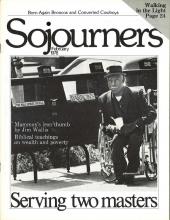Immediately after my conversion in 1961, I was introduced to the late Mondo, one of the founding fathers of the Revival Fellowship in Uganda. From time to time I would visit Mondo. I was profoundly attracted to his emphasis on walking in the light.
It was through Mondo's teaching that I came to learn about the East African revival. In the 1930s several Ugandans had discovered that, though they were busy having Bible studies, holding prayer meetings, and attending church services, the things they were doing were not the central message of Christ's teaching. They had to ask themselves: Did Jesus die for their meetings? Or was it for something else?
They found that Christ gives the instruction: Before you can enjoy your devotional life, make sure you are reconciled to your brother and sister whom you might have wronged during the day (Matthew 5:23). The command is to go quickly and make amends. Christ died not for our devotions; what Christ so dearly paid the price for is our relationship with God and with each other. When those relationships are violated, our devotions are an abomination to God.
A broken relationship is a poison. The Bible makes no exceptions: both the offended and the offender are equally guilty before God. You are to seek out those you think have something against you. If someone wrongs you, you have the obligation to rebuke him or her. If he or she repents, you have the obligation to forgive him or her.
The Revival Fellowship also found that we must confess our sins to one another. Confessing our sins is synonymous with walking in the light. Both James and John agree that, when this occurs, there is a healing from the Lord (James 5:16, 1 John 1:7). When there is no walking in the light, however, our prayers and church services are used only as religious counterfeits.
Every time I met with Mondo I was greeted with a threefold challenge:
Read the Full Article

